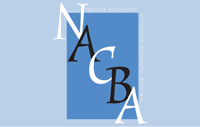If you’re facing an estate administration issue, you should brush up on estate basics and how they work. Understanding how the basic parts of many estates work can ease your conversations with your wills and trusts lawyer. When your family is dealing with a disputed will, fiduciary litigation, or a land dispute, you’ll feel more confident speaking with your lawyer about addressing the issues at hand.
What Is an Estate?
An estate refers to the property and assets owned by a person who has passed away. When someone dies, their relatives or other people they designate receive their property and assets. People can write wills, which are documents that explain how to distribute their property after death and who to give it to. If someone dies without a will, Massachusetts and other states have laws explaining how to distribute the property (typically to spouses and close relatives). These are referred to as the intestate succession laws because “intestate” means “without a will”.
The property and assets included in an estate can include many different kinds of objects or money, such as:
- Real estate (a house, a rental property, vacant land)
- Vehicles
- Money in bank accounts
- Money in investments like the stock market or a 401(k)
- Possessions like furniture, jewelry, or antiques
- Pets
- Ownership interest in a business
- Intangibles such as the rights to a trademark
When someone dies, all of their possessions become part of the estate. Their estate executor or personal representative appointed by the court has to distribute these possessions to the heirs mentioned in the will or to family members if there is no will.
Common Parts of an Estate Plan
Many people choose to make estate plans to have a say in who receives their property after their deaths. An estate plan typically includes a will. It also may include one or more trusts, an advance directive or healthcare proxy, a financial power of attorney, and other documents explaining how to handle that person’s affairs.
Creating an estate plan usually involves sitting down with a trusted attorney and discussing how to carry out your wishes after your death. For example, you may want to provide ongoing support for a relative who cannot work, even after you die. Your lawyer may recommend a particular type of trust that can pay the relative a regular distribution over time.
What Is Probate? What Is Estate Administration?
After someone dies, their family needs to figure out how to distribute their property in a process called “probate” or “probating the will”. The probate court helps family members sort out an estate by appointing a personal representative to manage the probate process. Often, the personal representative is the executor named in the will, or it could be another person chosen by the court. This person administers the estate with the court’s assistance.
The usual steps followed in administering an estate are (1) locating all of the deceased person’s property and important documents, (2) paying debts, (3) determining who should receive the remaining property and how much of it, (4) distributing the property, and (5) handling taxes and other paperwork to wrap up the estate. Sometimes, disputes involving the estate, such as will contests, delay the wrapping-up process. The probate court hears and decides these disputes.
How Do I Get Started with Probate or Estate Administration?
If your relative or friend passes away and you need to get started on their estate, seek out legal advice from a local probate attorney. Daigle Law Office handles probate and estate administration issues for Cape Cod and eastern Massachusetts clients. It’s best to get trusted advice rather than try to handle probate yourself because Massachusetts probate laws are far from straightforward. In particular, if you’re facing a contested will or any other kind of probate dispute, find legal representation to protect your and the estate’s interests.
Your Local Estate Lawyers
Are you looking for a dependable, experienced estate lawyer who can assist with a trust or probate issue? You’ve come to the right place. Daigle Law Office’s attorneys can provide you with experienced Massachusetts estate advice. We help clients dealing with tough situations who need solid and reliable information from knowledgeable local lawyers. Daigle Law Office’s attorneys consult with clients on Cape Cod and in eastern Massachusetts. To schedule a free initial consultation, call 508-771-7444 or use our convenient Contact Form.







